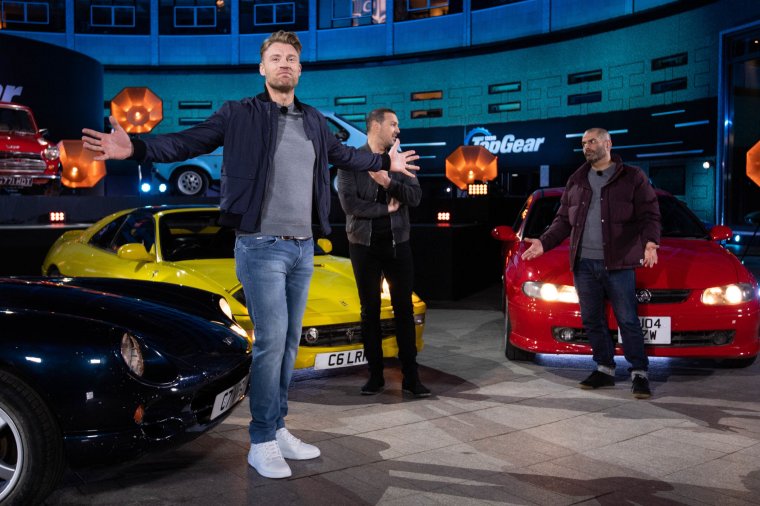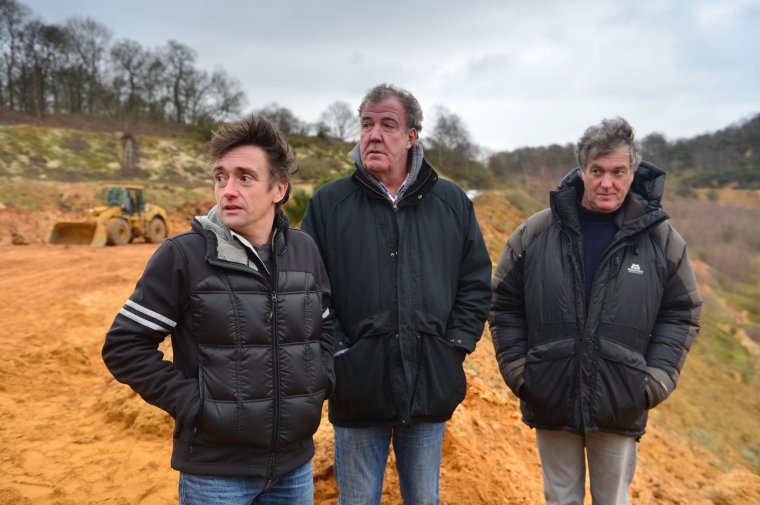Following the life-changing injuries to presenter Andrew Flintoff, Top Gear is being “rested for the foreseeable future”. As a euphemism it makes the BBC sound like the pet shop owner in Monty Python’s Dead Parrot sketch. Has the motoring magazine in fact (to paraphrase John Cleese’s aggrieved buyer) ceased to be, expired and gone to meet its maker?
If so, then its demise is long overdue. The 46-year-old TV show failed its MOT years ago – in 2015, to be precise, when Jeremy Clarkson was finally sacked and fellow presenters James May and Richard Hammond followed him out of the door.
The Clarkson, May and Hammond triumvirate re-made the formerly staid Top Gear in their own gung-ho image. So synonymous with the show did they become that when they decamped to Prime Video’s The Grand Tour, they took Top Gear’s spirit with them – lock, stock and two smoking exhaust pipes.
The BBC’s subsequent attempts to fill their enormous shoes was always going to feel like a tribute act – a half decent tribute act in the case of Flintoff and Paddy McGuinness, who succeeded the miscast Chris Evans and Matt LeBlanc.
The franchise is of course enormously profitable for the BBC’s commercial subsidiary, BBC Studios, with global syndication rights, live tours, books, a popular magazine and other merchandising. But so powerful is the Top Gear brand that profitability is no longer reliant on the existence of the TV show itself.
And the glory days when eight million viewers could be coaxed to watch Clarkson blow up a caravan and insult foreigners, or Hammond crash a drag racer and nearly kill himself, simply can’t be revived in the more politically sensitive, health-and-safety conscious present. And neither should they be. Trying to cling on to the anachronistic macho formula was dooming the programme to a slow death.

Love him or loathe him, Clarkson is an entertaining broadcaster (see Clarkson’s Farm for further proof). And in Hammond and May, he had his perfect backing band – an apt analogy given the trio’s likeness to superannuated 1970s rock stars. Their laddish and occasionally culturally insensitive banter often obscured the fact that they were well informed on the core subject of cars. Clarkson in particular has turned motor journalism into an art form.
Indeed (full disclosure) when last buying a car some 12 years ago, I consulted a copy of Clarkson’s collected Sunday Times motoring reviews. So I’ve ended up driving around in a 15-year-old Ford Mondeo – not glamorous, but as he suggested, a terrific, underrated car.
Anyway, a change is as good as a rest, and James May has responded to the cancellation by telling the BBC’s Today podcast that “there must be another way of doing a show about cars”.

Perhaps Top Gear should go back to what it used to be before the Clarkson takeover in 2002. Originally presented in 1977 by recent Strictly evictee Angela Rippon, this featured straightforward car reviews, road safety and consumer advice.
Not sexy, but stuff drivers can all relate to, unlike pitting Range Rovers against Challenger Tanks or driving a Mini Cooper down a ski jump. After all, motoring is changing, with electric cars and self-drive vehicles making the old “petrolhead” moniker obsolete.
There has been speculation that Prime Video may now be parting company with Clarkson (reportedly spurred on by his derogatory remarks about the Duchess of Sussex), although the streaming giant has not commented on the matter. If it did choose to discontinue The Grand Tour it would display the sort of ruthlessness that the BBC lacked in 2015.
It didn’t take a serious accident for them to recognise the difference between a classic car and a no-longer-roadworthy old banger.


Maurice Saatchi: I used to adore capitalism – then I had lunch with Margaret Thatcher